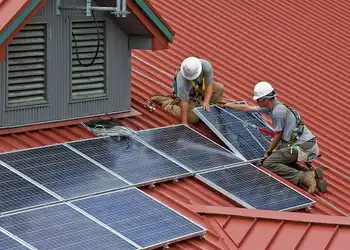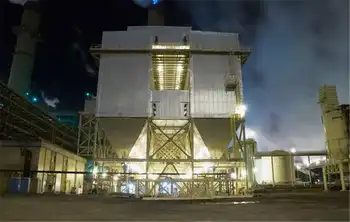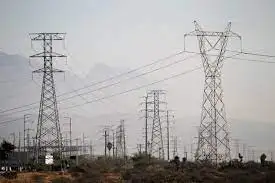Privacy czar raises alarm on smart meter data
By Toronto Star
NFPA 70e Training
Our customized live online or in‑person group training can be delivered to your staff at your location.

- Live Online
- 6 hours Instructor-led
- Group Training Available
You sign up for an energy conservation scheme that lets your local utility shut down your air conditioner temporarily if the power grid is overloaded. Shortly afterward, you get a marketing call from an air conditioning company.
Or this:
You buy an electric car that you charge up every Sunday night, but never on Mondays because you always do an overnight trip. One Monday night, your home is burgled.
In fact, this doesnÂ’t happen right now. Privacy commissioner Ann Cavoukian wants to keep it that way.
The electricity system is gearing up to gather more and more information about customers and their habits through smart meters and smart appliances, she says.
Cavoukian wants power system planners to protect private information, right from the start.
Cavoukian released a paper setting standards for utilities to use in keeping private information from leaking out in unauthorized ways.
“This is all about control: Who gets control over the personal data?” she said in an interview. “It’s your data, it’s not Toronto Hydro’s or Hydro One’s. You should be the person to decide how that data is used.”
Until recently, electric utilities didnÂ’t know that much about most power use in most households. They read the meter every couple of months, which gave an over-all usage, and that was about it.
But smart meters – now installed in just about every household across the province – now provide utilities with power readings every 15 minutes, almost in real time.
As well, consumers can volunteer to have devices that allow the utility to shut down their air conditioner.
And in the next few years, many appliances will grow “smarter”, allowing the electric utilities to peer into households and monitor what appliance are being used, and when, Cavoukian said.
Potential trouble lurks if that happens. In the wrong hands, up-to-the-minute data can tell people when youÂ’re not at home, she said.
And she recently attended a conference in the U.S. where utilities were talking about “monetizing” – they meant selling—the new information they were gleaning from their customers.
That, she says, is “an abomination” because the utilities were planning to use private information in ways the customer had not intended.
“You should care, because you didn’t sign up for unwanted marketing efforts,” she said. “You don’t want more spam, you don’t want more people calling you.”
Cavoukian said Canadian utilities have been far more sensitive about privacy issues. Toronto Hydro and Hydro One both worked with her in preparing the privacy standards.
The best privacy practices ensure that privacy is the “default option”: Customer information is kept private unless the customer specifically authorizes a release, she said.
Or, as one of her neighbours put it, when Cavoukian explained the principle to her:
“You mean, if I do nothing, I get privacy for free.”











